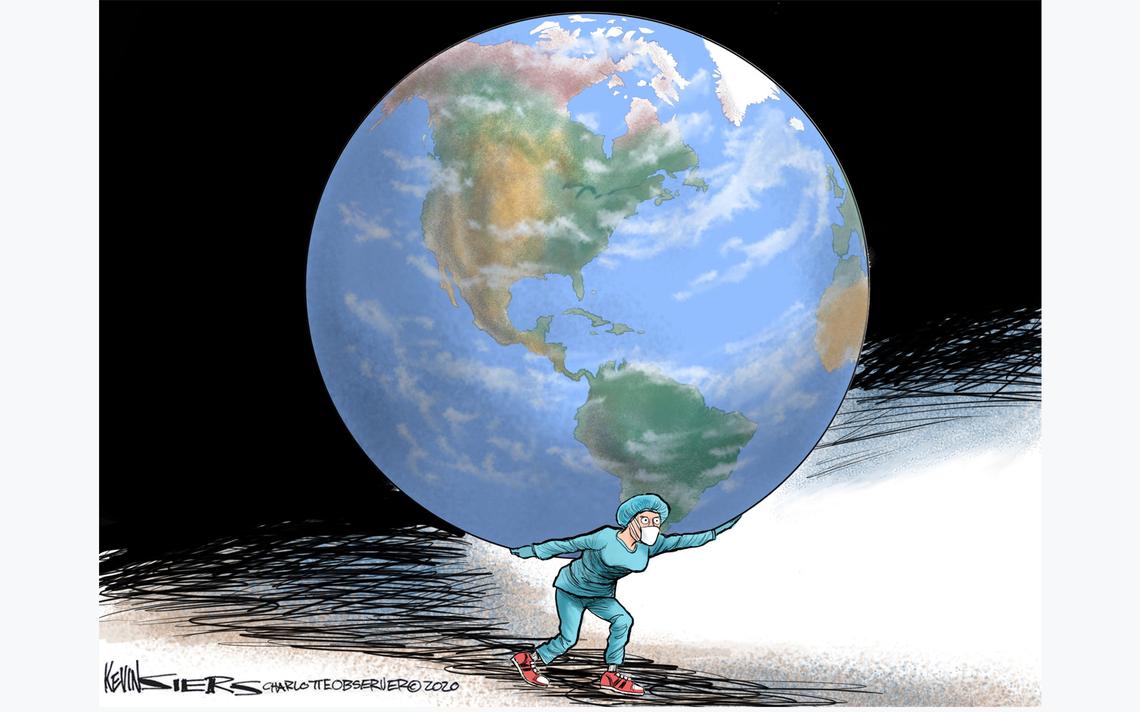Local View: Born again — my body, that is, thanks to US health care |
 |

By John Freivalds
8/2/2020
Duluth News Tribune, Duluth, MN
In April I had quadruple bypass surgery, but rather than let it mark the end of my life as I knew it, the surgery allowed a born-again new me to emerge.
The open-heart procedure was to improve the blood flow to my heart. One of my friends described it as a Roto-Rooter for the heart’s arteries. All four of mine were clogged. My wife was the one who realized I wasn't breathing. Sirens blaring, I was rushed to the emergency room.
For those of you who know blood pressure, mine is now 110 over 65. Before, though, the numbers read like what gas stations charge for a gallon of fuel.
And for you medical trivia fans, the first successful open heart surgery was done in Minnesota in 1952.
Rather than merely blaming stress and bad eating habits, I learned that my heart problem, like most Americans with a heart problem, goes back thousands of years. Huh? During my recovery (it takes six months), I read Yuval Noah Harari’s book, “Sapiens: A Brief History of Mankind.” If you weigh too many pounds, you will be happy to know that gaining weight is in our genes and DNA. Harari put it this way: “The instinct to gorge on high-calorie food was hardwired into our genes. Today we may be living in high-rise apartments with overstuffed refrigerators, but our DNA still thinks we are in the Savannah. That's what makes us spoon down an entire tub of Ben & Jerry's when we find it in the freezer and wash it down with a jumbo Coke."
So my ancient eating habits contributed to my needing bypass surgery.
As I tell people, if you are going to have this surgery, have it during a pandemic. My hospital had canceled all elective surgeries, so I was the only patient on the hospital’s third floor. I spent three days in intensive care and 10 as an ordinary patient. This meant I had swarms of nurses going in and out to check on me, making sure I was OK. Twice a day I had to get up and walk down the deserted third-floor corridor. It was spooky to see all the empty beds. The hospital didn't allow visitors, so I spent the time with my army of nurses.
I didn't sleep well because the nurses were always checking this and that at all hours of the day and night. I think I was hooked up to five machines. Since my wife wasn't allowed to sneak in hamburgers, I was relegated to the hospital’s offerings: nutritious but tasteless — and why not? The hospital went out of its way to avoid salt or meat with the slightest bit of fat.
I tried everything on the hospital menu, even the turkey meatloaf, but to no avail. Nurse John said, "You have to eat something!" OK, the tapioca pudding — but man cannot live on tapioca pudding. So between the surgery and the retracted diet, I lost 25 pounds. When I got home, none of my pants fit. They kept falling off, and I had to start wearing a belt.
When I was strong enough, my wife came and got me. For three months I had to sit in the back seat, as any front-end crash would have had the airbag explode into my chest, likely causing my stitches to open.
Upon leaving the hospital, I asked my wife for one last bit (or was it bite?) of my past. “Please take me to McDonald’s,” I implored, wanting one last Big Mac. She obliged, although grudgingly.
To those who want to retire to Botswana or some such place, think again. You would be hard pressed to find better medical treatment than you have here.
John Freivalds of Wayzata, Minn., is the author of six books and is the honorary consul of Latvia in Minnesota. His website is jfapress.com. He wrote this for the News Tribune.
